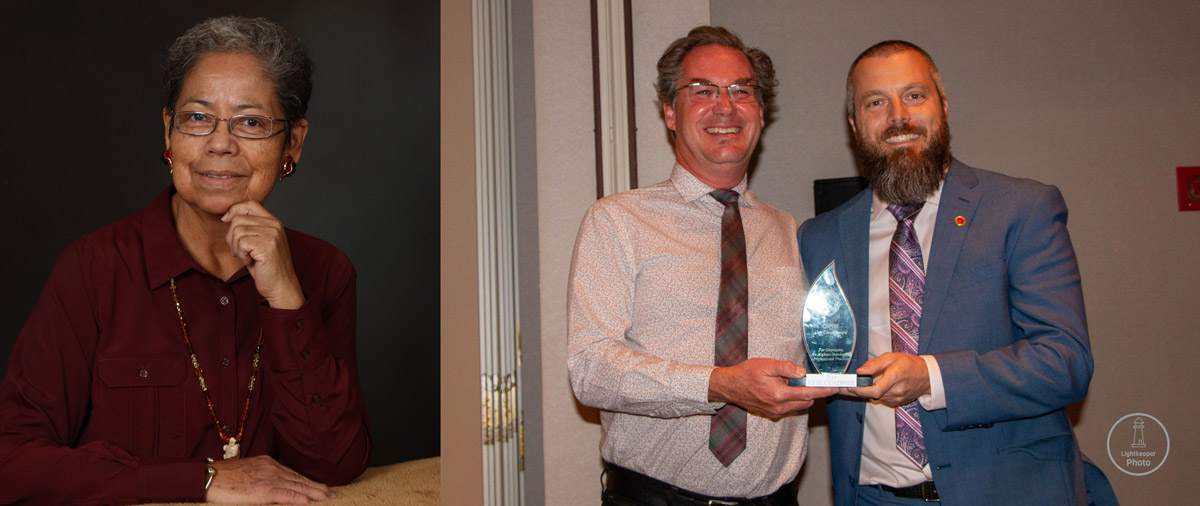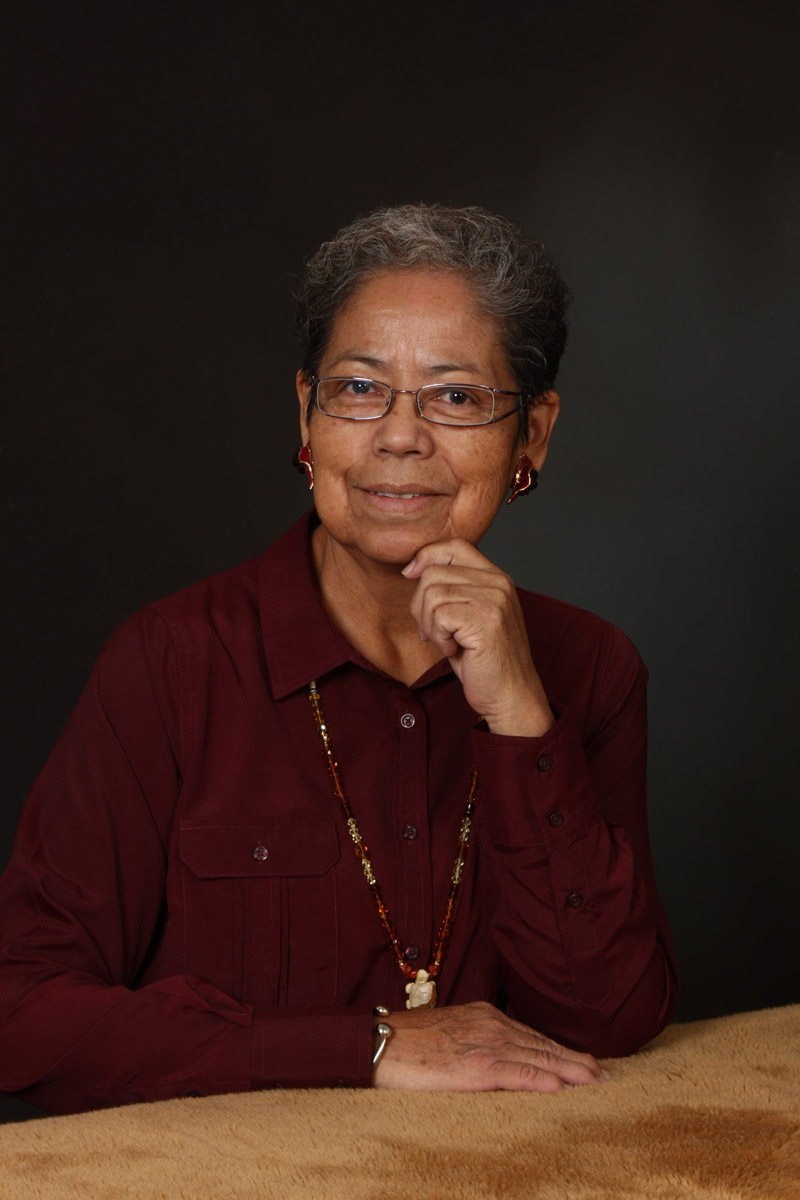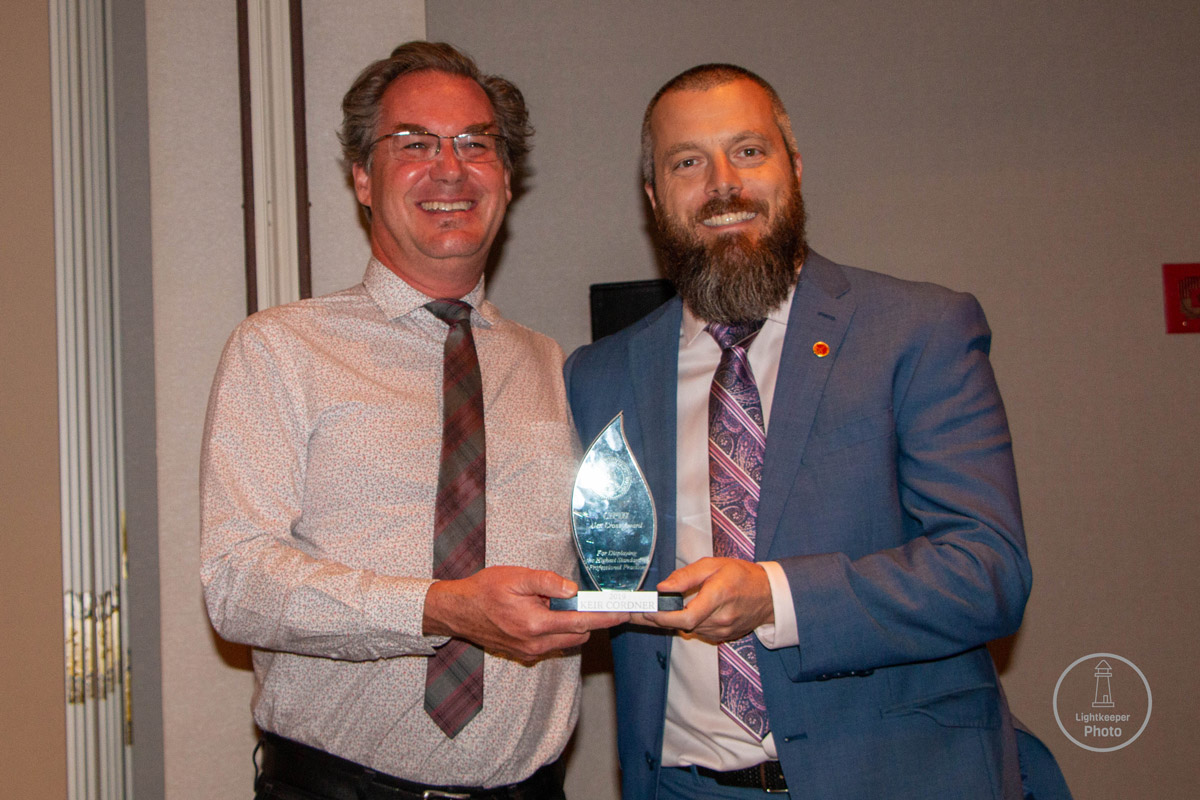On World Environmental Health Day FNHA celebrates two Environmental Health Officers recognized for their outstanding work with First Nations in British Columbia

September 26, 2019 marks World Environmental Health Day, with a focus on climate change this year and how it impacts communities, including First Nations communities.
Environmental health professionals at FNHA are partners to communities and provide advice and guidance to First Nations leadership in British Columbia on a wide range of environmental health topics, including drinking water, food safety, air quality, and emergency preparedness and response.
With World Environmental Day, there is a call for Environmental Health Practitioners to play a pivotal role in adaptation strategies and measures to protect all communities against the challenges of climate variability at a grassroots level.
The theme of this year's Environmental Public Health Week, “Exploring the Edge", highlights the innovative approach environmental health professionals take to existing and emerging public health concerns. The adoption of new technologies, techniques, and best practices in the assessment and control of both foundational environmental health areas such as food safety, and emerging areas of concern such as lead and manganese in drinking water, highlight the adaptive abilities of these professionals.
By applying a community-driven, Nation-based lens to their work, FNHA environmental health teams are able to adapt programming to meet the unique needs of each community and support them in addressing the challenges of a changing environment. Climate change, drinking water quality, and access to safe traditional food systems are all areas where FNHA Environmental Health Officers “explore the edge" of environmental health, being guided and driven by the First Nations Perspective on Health and Wellness. This means taking on a holistic view of the environment which requires us to explore the edge, if not completely push the boundaries of the edge!

Celebrating Rita Manuel, British Columbia's first female Indigenous Environmental Health Officer
Environmental Public Health Week this year is also a monumental milestone and the 50th anniversary for one of FNHA's Environmental Health Officers and Certified Public Health Inspector. Rita Manuel became the first female and first Indigenous Environmental Health Officer, and for the past five decades, has been providing support to Interior First Nations in both roles.
Rita Manuel was the first Indigenous person to attend the Certified Public Health Inspector (CPHI) program at BCIT in 1969, and worked for Health Canada as an Environmental Health Officer (EHO) before leaving to become a Community Health Representative for several First Nations communities. In 1995, she returned to Health Canada to staff a new district office, and from there she provided public health support to more than twelve First Nations in the Merritt, Lillooet and Fraser Canyon areas. Rita was an active supporter of the Upper Nicola Band where she promoted Sylix First Nation culture and recreation to the youth of that Nation. Rita's commitment to service and First Nations health has had a far-reaching and significant impact.
Environmental Public Health Professionals are an integral and important component of the Canadian health care system. The role of Environmental Health Professionals in public health advances such as safer and healthier foods; control of infectious diseases; healthier environments; and the recognition of tobacco use as a health hazard have contributed significantly to improved life expectancy for all people living in Canada.
Environmental Public Health Professionals are employed by federal, provincial, and local governments, First Nation governments, and within the private sector. They are involved in public education and the inspection and enforcement of a wide range of programs and services, including but not limited to: food premises, recreational water, health care, childcare facilities, personal services, drinking water systems, land use, sewage systems, air quality, institutions and the control of health hazards within the community.
An evolving public health landscape means that environmental health professionals must constantly be learning, researching, and collaborating to ensure they are fully aware of the risks faced by the public, and the best ways to protect them.
Climate change is leading to increased and new environmental health risks, including new communicable diseases, poor water quality, and threatened food systems. Environmental health professionals are one of the public's first and best lines of defense against these threats.
Certified public health inspectors in Canada engage in a rigorous continuing professional competency program to ensure that their skills and knowledge are ready to protect the health of the Canadian public, no matter what challenges arise.
During the unprecedented wildfire emergency seasons of 2017 and 2018, environmental health teams supported communities in disaster response and recovery, helping to ensure evacuees were healthy and safe, and that communities were prepared to welcome them home when danger had passed. By advocating for emergency response services that were culturally safe, FNHA supported positive changes to the way partners delivered services.

FNHA Environmental Health Officer Keir Cordner recognized for high standards of professional practice
Keir Cordner, an FNHA Environmental Health Officer located in the Island Region, was recognized in 2019 with the Alex Cross Award. This award, presented by the Canadian Institute of Public Health Inspectors, is issued to an EHO who displays the highest standards of professional practice, including significant contributions to the advancement of the field of environmental health. Keir was recognized for his role in developing the continuing professional competencies program that ensures that certified EHOs maintain their knowledge and advance their education.
Congratulations to both Rita Manuel and Keir Cordner for their incredible accomplishments, and we extend our appreciation for their ongoing contributions toward safety and security for First Nations and Indigenous people living in BC.
To learn more about World Environmental Health Day from the International Federation of Environmental Health, visit https://www.ifeh.org/wehd/2019/WEHD2019.pdf

